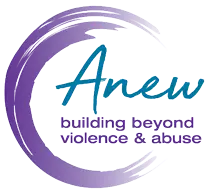Daily Southtown
Oct 17, 2022 at 12:57 pm

If domestic violence was happening in front of you, would you know how to respond?
For many people, the answer is no. South Suburban College is addressing that issue by conducting live and virtual bystander intervention trainings as part of Domestic Violence Awareness Month activities.
“What we are trying to do is teach how to be aware that a domestic violence situation might be unfolding and if they were to encounter a situation — at school, in their own homes or out in the community, at athletic events or a party — the skill set to be able to do something about it,” said Alexandra Glumac, who is facilitating the training.
“Violence can’t be stopped unless people intervene,” said Glumac.
The trainings are part of a comprehensive effort underway at South Suburban to raise awareness on domestic violence, sexual assault, dating violence and stalking, to prevent such violence and assist victims.
The initiatives are funded by a three-year, $300,000 grant the college received from the U.S. Department of Justice Office on Violence Against Women. South Suburban is partnering with community victims’ services providers YWCA Metropolitan Chicago and Anew: Building Beyond Violence and Abuse.
The initiative addresses a critical need. Nationally, about one in three women and roughly one in four men report having experienced severe physical violence from an intimate partner in their lifetime, according to the Centers for Disease Control and Prevention. Forty-three percent of dating college women report experiencing some violent and abusive dating behaviors including physical, sexual, tech, verbal or controlling abuse, according to a poll by Fifth & Pacific Companies Inc.
In the bystander training sessions, participants learn intervention strategies including “direct involvement where you put yourself in situation and say things like ‘knock it off’ or ‘you can’t say that to her’ or ‘you have to stop,’” said Glumac.
Another strategy students are taught is distraction, which could be asking the abuser an irrelevant question, such as can you tell me where the library is, or do you know what time it is — something to distract the abuser and enable the victim to get away from the situation. A third strategy is getting assistance by calling on friends to help intervene or contacting the police, Glumac said.
In the sessions, the warning signs of domestic violence are discussed and information on resources available on campus and in the community are provided.
Faculty encourage students to attend the training, and many faculty give extra credit or make it part of their class syllabus for students to attend, Glumac said. All college athletes are required to take the training, she said.

To further spotlight domestic violence, South Suburban worked with Anew, formerly South Suburban Family Shelter, to hold a Zoom Healthy Relationships workshop last week. Often people don’t realize they are in abusive relationships nor understand that abuse can take different forms, said LaSandra Hutchinson, Anew community outreach specialist, and Celeste Angulo, Anew community educator.
Abuse can be physical, psychological, sexual, spiritual and financial, and tactics used by perpetrators can include threats, intimidation, harassment, isolation, manipulation and coercion, they said. The components of a healthy relationship include respect, boundaries, honest communication, trust and accountability, and signs of an unhealthy relationship are abusive behavior, lack of communication and lack of boundaries, they said.
The session also included a discussion on myths. Some include that only women can be victims of domestic violence, only low-income people are victims and if situations were truly bad, people would leave.
There are barriers that often prevent individuals from leaving abusive situations, Hutchinson and Angulo said. Barriers include fear, lack of financial resources, insufficient shelters, culture, religious beliefs, love for the abuser and the belief they can change the abuser.

South Suburban student Latrice Jones, who said she has experienced domestic violence and is a peer mentor at the college, participated in the bystander intervention training and the Healthy Relationships workshop.
“I learned how to positively intervene, safe ways to intervene and who to contact if we do see something,” she said.
That is knowledge she can share with other students, she said. She commended the college’s work to address domestic violence.
“I believe it’s essential to have it on campus,” Jones said. “Sometimes the person who is going through the abuse may feel they have no resources, no one to reach out to.”
By equipping students with knowledge, it positions them to help people on and off campus who are experiencing abuse, Jones said.
This month, as an act of solidarity against domestic violence, students, staff, south suburban businesses and community residents are being asked to wear purple on Thursdays and display purple window lights.
South Suburban will host a free Dating/Domestic Violence, Sexual Assault, and Stalking Resource Forum & Expo, open to the general public and South Suburban students, faculty and staff, from 8-11 a.m. on Friday at the college’s Kindig Performing Arts Center, 15800 S. State St., South Holland. Jones said she plans to attend.
The event will feature service providers and offer information on local resources. Panelists will include Deborah Baness King, vice president of student & enrollment services at South Suburban; Ruben Lopez, an advocate at YWCA Metropolitan Chicago; Anew’s Angulo; and Sara Block, director of Advocacy at Ascend Justice. Registration is required. To learn more information or to register, go to visit SSCDVResourceexpo.eventbrite.com.
For more information on the South Suburban College domestic violence program, email Glumac at aglumac@ssc.edu. For domestic violence-related help, contact:
• YWCA of Metropolitan Chicago: www.ywcachicago.org
• Anew: Building Beyond Violence and Abuse: www.anewdv.org, emergency hotline 708-335-3028
• National Domestic Violence Hotline: 800-799-7233
Francine Knowles is a freelance columnist for the Daily Southtown.
